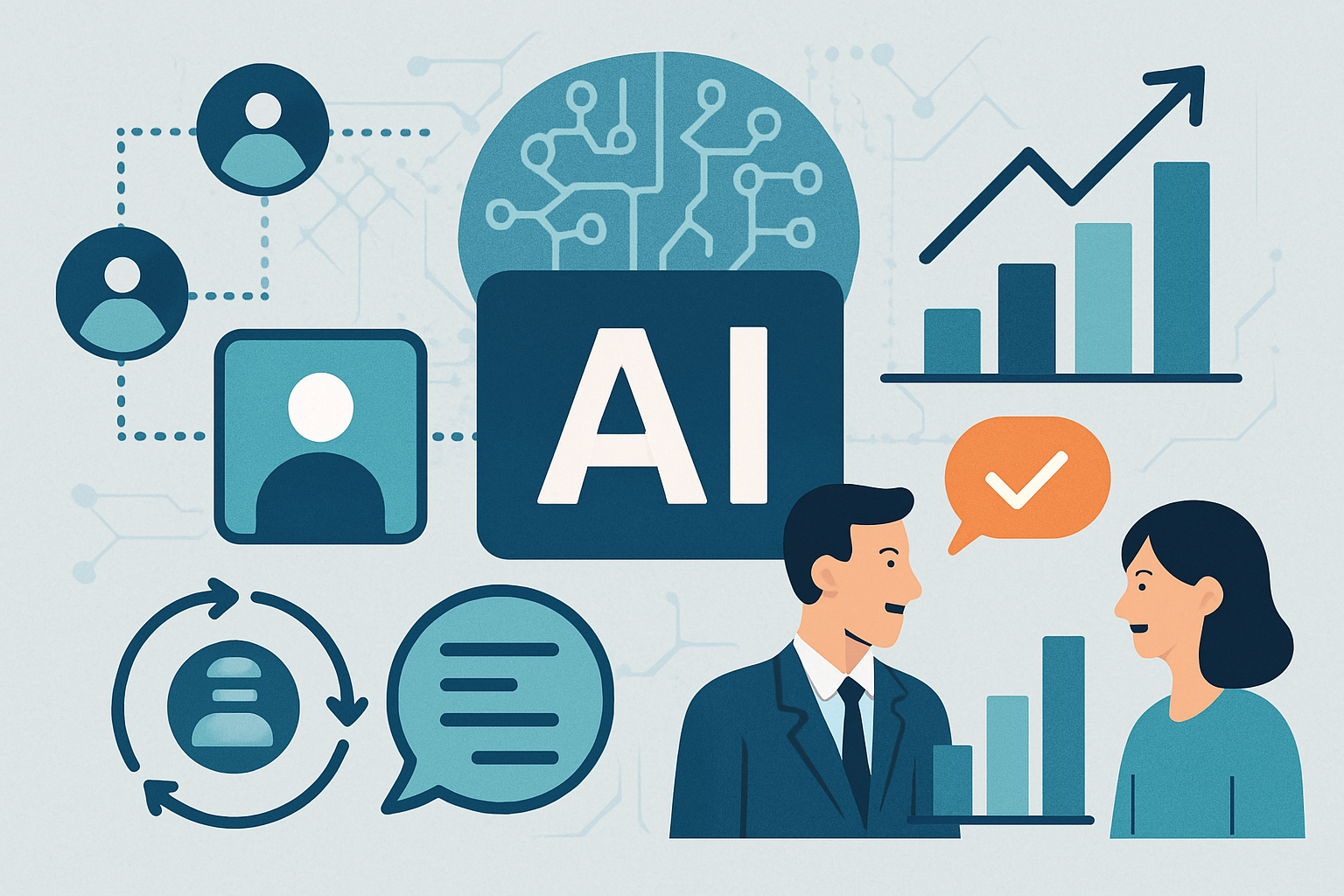
AI in Human Resources: Streamlining Recruitment, Performance Management, and Employee Engagement
Introduction: AI as a Strategic Partner in HR
Artificial Intelligence (AI) is rapidly transforming the Human Resources (HR) landscape, evolving from a niche technology to a strategic partner capable of streamlining complex processes, enhancing decision-making, and improving the overall employee experience. In today’s dynamic business environment, HR departments are leveraging AI to optimize recruitment, refine performance management, boost employee engagement, and derive actionable insights from workforce data. This article delves into the significant impact of AI on HR, exploring its applications in various functions, highlighting key tools and platforms (with an eye for affiliate marketing opportunities), and discussing the crucial ethical considerations that accompany its adoption.
AI in Recruitment: Finding and Attracting Top Talent More Efficiently
The talent acquisition process is often time-consuming and resource-intensive. AI offers numerous ways to make it more efficient and effective.
- Automated Resume Screening and Candidate Matching: AI algorithms can quickly scan thousands of resumes, identifying the most qualified candidates based on predefined criteria, skills, and experience. This significantly reduces the manual effort involved in initial screening and helps uncover talent that might otherwise be overlooked.
- Chatbot-Based Initial Interactions and FAQ Handling: AI-powered chatbots can engage with candidates 24/7, answering frequently asked questions about job roles, company culture, and the application process. They can also conduct initial screening interviews and schedule further assessments.
- Automated Interview Scheduling: AI tools can coordinate interview schedules between candidates and hiring managers, finding mutually convenient times and sending out invitations and reminders.
- Predictive Analytics for Hiring Success: Some AI tools analyze historical hiring data to identify characteristics of successful employees, helping to predict which candidates are most likely to thrive in a particular role or within the company culture.
- Leading Recruitment Tech (Examples & Affiliate Opportunity): Applicant Tracking Systems (ATS) like Workday, SAP SuccessFactors, and Greenhouse often incorporate AI features. Specialized AI recruitment platforms (e.g., Ideal, Paradox (Olivia), Eightfold.ai) also offer robust solutions and may have partner or referral programs.
AI for Performance Management: Fostering Growth and Identifying Potential
AI is providing new tools to make performance management more continuous, data-driven, and personalized.
- Analyzing Employee Data for Insights: AI can analyze various data points (e.g., goal completion, skill development, peer feedback, project contributions) to provide a more holistic view of employee performance. This can help identify high-potentials, skill gaps, and areas for development.
- Personalized Feedback and Coaching: Some AI tools can offer personalized feedback or suggest learning resources based on an individual’s performance and development goals. (It’s crucial to ensure this is supplementary to, not a replacement for, human manager coaching).
- Bias Detection in Performance Reviews: AI can be used to analyze performance review language to identify potential biases, promoting fairer and more objective evaluations.
- Ethical Boundaries: The use of AI in performance management must be transparent, and employees should understand how their data is being used. Human oversight and judgment remain paramount.
AI in Employee Engagement and Retention: Cultivating a Positive Work Environment
Understanding and improving employee engagement is critical for retention and productivity. AI can offer valuable insights.
- Sentiment Analysis of Employee Feedback: AI can analyze employee survey responses, internal communications (with appropriate privacy safeguards), and even public reviews to gauge overall sentiment and identify areas of concern or high satisfaction.
- Personalized Learning and Development Recommendations: AI can recommend relevant training courses, mentorship opportunities, or career paths based on an employee’s skills, interests, and career aspirations.
- Predicting Attrition Risk: By analyzing various factors, AI models can help identify employees who may be at risk of leaving, allowing HR to intervene proactively with retention strategies.
AI for HR Analytics: Turning Data into Strategic Workforce Insights
HR departments generate vast amounts of data. AI helps unlock the strategic value within this data.
- Identifying Trends in Workforce Data: AI can analyze data related to recruitment, performance, engagement, compensation, and attrition to identify significant trends and patterns.
- Informing Strategic HR Planning: These insights can inform decisions about talent acquisition strategies, compensation and benefits packages, diversity and inclusion initiatives, and future workforce needs.
- Workforce Planning and Optimization: AI can help model different workforce scenarios and optimize staffing levels based on business forecasts.
Ethical Considerations: Navigating the Human Element in AI for HR
The integration of AI into HR brings significant ethical responsibilities:
- Bias in AI Recruitment Tools: AI models trained on biased historical data can perpetuate or even amplify those biases, leading to unfair hiring practices. Rigorous testing and auditing for bias are essential.
- Data Privacy of Employee Information: HR departments handle sensitive employee data. Robust security measures and clear policies on data usage and consent are critical when using AI tools.
- Transparency in AI-Driven HR Decisions: Employees have a right to understand how AI is being used to make decisions that affect them (e.g., hiring, promotions, performance evaluations).
- The Importance of Human Oversight: AI should be seen as a tool to augment human HR professionals, not replace them entirely. Human judgment, empathy, and contextual understanding remain indispensable.
Conclusion: Balancing AI Efficiency with Human-Centric HR
Artificial Intelligence offers transformative potential for Human Resources, enabling departments to operate more efficiently, make more data-driven decisions, and enhance the employee experience. From streamlining recruitment and personalizing performance management to boosting engagement and providing strategic workforce insights, AI is a powerful ally. However, its adoption must be guided by strong ethical principles, a commitment to fairness and transparency, and a clear understanding that technology is there to support, not supplant, the essential human element of HR. By striking this balance, organizations can harness the full potential of AI to build more effective, equitable, and engaging workplaces. Affiliate marketers can find opportunities by promoting AI HR solutions that prioritize ethical considerations and deliver tangible value.

Leave a Reply